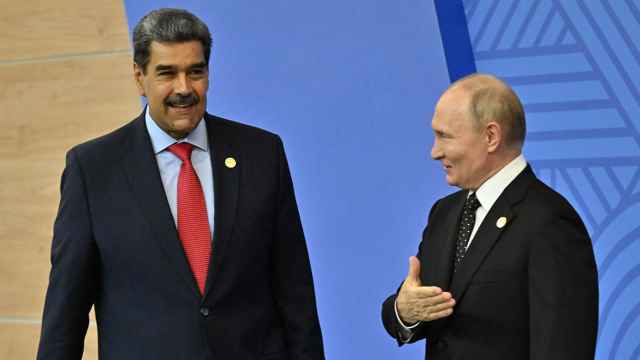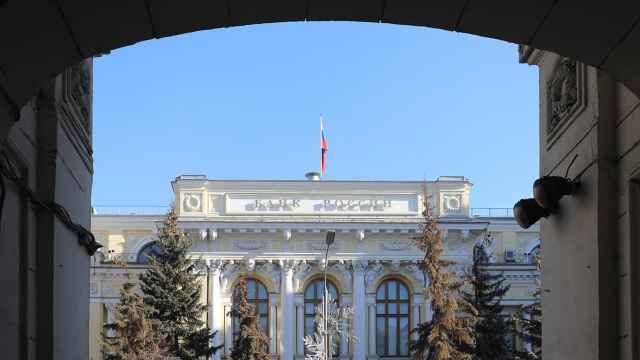President Vladimir Putin spoke with his Iranian counterpart, Hassan Rouhani, by telephone to discuss Iran's nuclear standoff with the West and aspects of "carrying out agreements reached on the Iran nuclear program," the Kremlin said in a statement.
The pair also discussed the conflict in Syria, Iranian media reported.
The conversation Thursday came as talks between Iran and the European Union started in Geneva to discuss the practical details of implementing a nuclear agreement reached by world powers including Russia in November, an EU spokeswoman in Brussels said.
"I hope during the two-day talks we can resolve the remaining technical issues which are based on our different interpretation of text of the November accord," Iran's top negotiator, Abbas Araqchi, told state television in Geneva.
Under the terms of the interim deal struck with the U.S., Russia, China, Germany, France and Britain, Iran must limit its high-level enrichment for a period of six months in exchange for relief from some international sanctions.
Scope for diplomacy widened after Iran elected the pragmatic Rouhani as president in June. He had promised to reduce Tehran's isolation and win an easing of sanctions.
Despite fierce criticism by political and religious hardliners, who see the agreement as an infringement of Iranian sovereignty, Iranian Supreme Leader Ali Khamenei had previously backed the accord.
Iran says its nuclear work is entirely peaceful but the West suspects it is aimed at acquiring a nuclear bomb capability.
Nuclear experts from Iran and the six powers have held several rounds of talks since Nov. 24 to resolve various technical issues before the interim deal can be put into place.
The experts have to work out when the accord will be implemented. Western diplomats and Iranian officials say the six powers and Iran want to start implementing the deal on Jan. 20.
"First the interim agreement needs to be implemented. I think that by the end of January, or at least I hope, it will be implemented. That Is the interim period," said French Foreign Minister Laurent Fabius on Wednesday.
Diplomats said Wednesday that the nuclear talks on implementing the landmark November deal have run into problems over advanced centrifuge research, highlighting the huge challenges facing Iran and the six powers in negotiating the precise terms of the deal.
Iran says centrifuge research is crucial. Centrifuges purify uranium for use as fuel in atomic power plants or, if purified further, weapons.
Another potential obstacle to enacting the agreement could come from Iran's parliament, which is considering a bill that would call for uranium enrichment to 60 percent, sufficient for use in the reactors that power nuclear submarines.
Iran's nuclear chief said Saturday that the government will have no choice but to step up its uranium enrichment if the bill is approved, even though it has no current need for such highly enriched uranium.
A Message from The Moscow Times:
Dear readers,
We are facing unprecedented challenges. Russia's Prosecutor General's Office has designated The Moscow Times as an "undesirable" organization, criminalizing our work and putting our staff at risk of prosecution. This follows our earlier unjust labeling as a "foreign agent."
These actions are direct attempts to silence independent journalism in Russia. The authorities claim our work "discredits the decisions of the Russian leadership." We see things differently: we strive to provide accurate, unbiased reporting on Russia.
We, the journalists of The Moscow Times, refuse to be silenced. But to continue our work, we need your help.
Your support, no matter how small, makes a world of difference. If you can, please support us monthly starting from just $2. It's quick to set up, and every contribution makes a significant impact.
By supporting The Moscow Times, you're defending open, independent journalism in the face of repression. Thank you for standing with us.
Remind me later.





